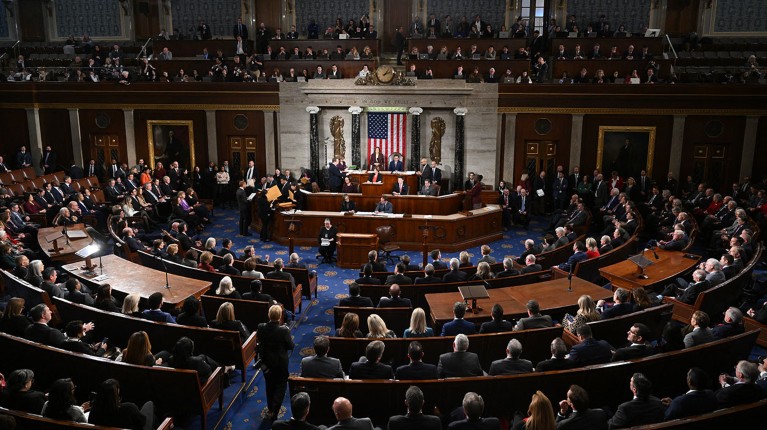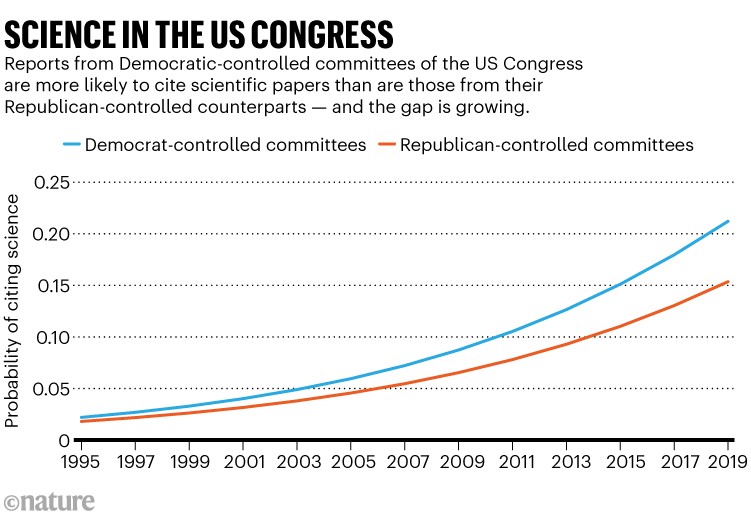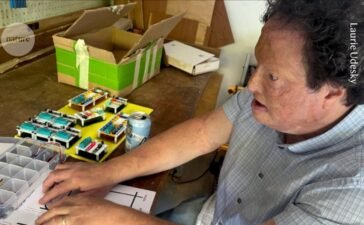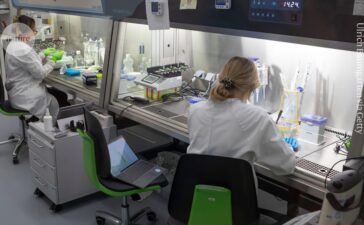
How US lawmakers cite scientific papers differs either side of the aisle.Credit: Saul Loeb/AFP via Getty
The United States is known for the deep polarization between its two major political parties — the right-wing Republicans and left-wing Democrats. Now an analysis of hundreds of thousands of policy documents reveals striking differences in partisan policymakers’ use of the scientific literature, with Democratic-led congressional committees and left-wing think tanks more likely to cite research papers than their right-wing counterparts.
Has your research influenced policy? Use this free tool to check
The analysis also shows that Democrats and left-leaning think tanks are more likely to cite high-impact research, and that the two political sides rarely cite the same studies or even the same topics.
“There are striking differences in amount, content and character of the science cited by partisan policymakers,” says Alexander Furnas, a political scientist at Northwestern University in Evanston, Illinois, and a co-author of the analysis, published1 in Science on 24 April.
The researchers used the government-policy database Overton to assemble around 50,000 policy documents produced by US congressional committees in 1995–2021 and around 200,000 reports from 121 ideologically driven US think tanks over a similar period. These documents contained 424,000 scientific references.

Source: Ref. 1
A statistical analysis revealed that congressional reports are now more likely to cite science papers than before. But, in each two-year congressional cycle, documents from committees under Democratic control had a higher probability of citing research papers, and the gap between the two parties has increased (see ‘Science in the US Congress’). Overall, documents from Democratic-controlled committees were nearly 1.8 times more likely to cite science than were reports from Republican-led ones.
You Might Also Like
How AI slop is causing a crisis in computer science
AI slop is flooding computer science journals and conferences.Credit: Quality Stock/AlamyFifty-four seconds. That’s how long it took Raphael Wimmer to...
The ‘astounding’ rise of semaglutide — and what’s next for weight-loss drugs
First established as a treatment for diabetes, semaglutide’s popularity as a weight-loss drug has opened the door to new therapies.Credit:...
My mission to make life more user friendly for the disability community
Josh Miele explains the nuances of a tactile map of a Bay Area Rapid Transit station.Credit: Laurie UdeskyWorking scientist profilesThis...
US grant applicants surge at prestigious European research agency
Money could become harder to come by for European scientists if the overall European Research Council pot does not dramatically...











